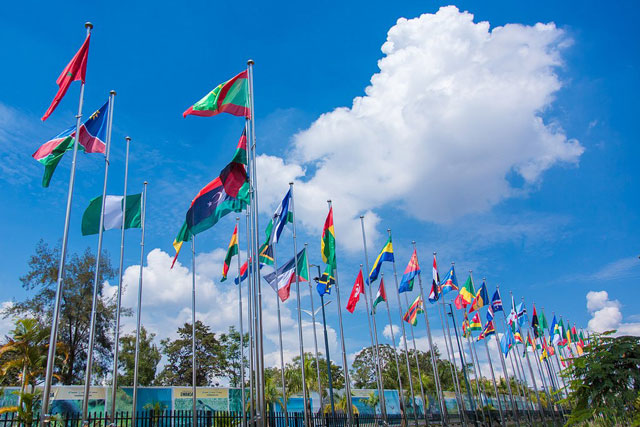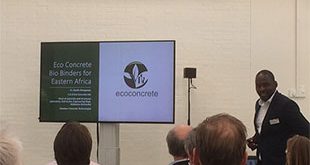
Why our obsession with foreign direct investment as a driver of our transformation is misguided
THE LAST WORD | Andrew Mwenda | It is the Italian thinker-philosopher, Antonio Gramsci, who coined the term hegemony. He used it to refer to the sum total of beliefs, values, explanations and perceptions that a dominant class develops and which subordinate classes accept as the norm i.e. as the normal way things are and should be. Hegemony is therefore the universally dominant ideology that justifies the existing social, political and economic status quo as natural, normal, inevitable and beneficial to everyone. Yet any such status quo is actually an artificial social construct developed by and for the benefit of the dominant social group.
It is by appreciating Gramsci’s insight that we can understand the position Africa finds herself in. Across our continent today – in the mass media, academia, inside bureaucracies, “civil society” and in business – we are told that for our countries to develop, they must fight corruption, build democracy, respect human rights, promote Foreign Direct Investment (FDI) and publically fund universal healthcare and education. We are constantly told that we are poor because we lack “good governance.”
Across Africa, our elites and their cheerleaders in the West tend to regurgitate these arguments as gospel truths. Yet these arguments cannot stand scrutiny. The industrial revolution that began in Europe and which spread to its offshoots in North America happened when there was no democracy in those parts of the world and even less respect for human rights than in Africa today. There was little publically funded universal education and healthcare. The West did not industrialise because of democracy and respect for human rights. Rather these were results of industrial transformation. The same applies to Japan, Taiwan, South Korea and China today.
Equally the Western World transformed from a poor agrarian state to a rich modern industrial situation when practices categorised as corruption today were normal and in fact legal. These practices were codified as corrupt in the West as recently as the 1900s. The current anti corruption regime in the West is therefore a result, not a cause or stimulant, of development. This is a historic fact, not an opinion. I am not suggesting that we should tolerate corruption. I am only saying it is not a development impediment – at least not to the degree we think it is.
Now someone can to argue that we live in a modern world, which has changed the bases for development of poor nations. They can add that globalisation has created norms and values that make corruption an impediment to Foreign Direct Investment (FDI). But this argument presupposed that FDI is an engine of growth. I will argue below that this claim is misleading. Secondly, this claim against corruption is defeated by reality because China is a rapidly industrialising nation that is at the same time riddled with high levels of corruption.
It is this obsession with FDI that I want to hit on the head. This is because it has diverted our attention from the things that matter for development. For example, promoting the participation by indigenous or local or national or domestic investors as the drivers of our development is critical. Such a policy would aim at facilitating the development of local firms through state support that involves access to affordable long-term credit, tax exemptions and government subsidies.
Yet African leaders and elites are obsessed with the belief that FDI is the magic bullet for development. FDI does not cause economic growth. Rather it is economic growth in a country that attracts FDI. It is true the entry of FDI contributes to more growth. But the primary driver of growth is having the right policies and good institutions.
If FDI is such a big factor in the industrial transformation of nations, can someone name for me a country that transformed from a poor peasant society into a modern industrial nation by relying on FDI? I know the United States industrialised with Carnegie Steel, General Motors and Ford; Germany with Mercedes Benz Audi, WV and BMW, France with Peugeot and Citroen, Japan with Toyota, Nissan and Toshiba, South Korea with Samsung, Hyundai and LG.
Why do African elites and their leaders expect our countries to industrialise without such products and brands but by merely assembling other nations’ inventions, innovations and products? This is where the Gramsci’s concept of hegemony is very useful. These arguments are for the benefit of powerful nations where multinational capital is dominant, not for poor countries trying to develop and therefore need to grow their own firms as agents of that transformation.
For example, it is true corruption makes it hard for multinational capital to operate in poor countries. But this in-and-of-itself may not be because corruption is bad for business. Rather it may be that the foreign-ness of multinational capital denies it the necessary social ties with local officials for it to be competitive in the bribery market. However, this may not be necessarily bad for poor countries. In fact corruption may provide local firms with a competitive advantage over multinational capital. This is because they are socially connected to state officials and know how to work the system.
The arguments against corruption originate from rich nations based on the experience of multinational capital failing to get business in poor countries. They spread among elites in poor countries through the dominance of Western media and academia on our intellectual life. But such arguments are the way multinational capital seeks to regain a competitive advantage over local firms. Handing over our economies to multinational firms has high short-term benefits but it is injurious to our economies in the long-term. I will explain this on another day.
Indeed, all too often, we attract FDI by giving it incentives like tax exemptions and allowing it 100% profit repatriation. But to do business in a poor country, multinational capital uses facilities like roads and airports for free. It is also often given subsidised electricity and water. It employs healthy and skilled or semi skilled people treated and educated at the expense of the taxpayer. If it does not pay its fair share of taxes, you may find that the net gain from such investment is negative i.e. the country may be losing more than it gains from FDI.
Therefore, we are obsessed with opening up to FDI, not because this promotes development but because the vested interests in this project enjoy ideological hegemony over our nations. African elites and our leaders who make these arguments in favour of FDI may be genuine but are mistaken.
*****
amwenda@independent.co.ug
 The Independent Uganda: You get the Truth we Pay the Price
The Independent Uganda: You get the Truth we Pay the Price




Andrew. I like the way you argue out things.
True, what is disturbing african elites is ideological disorientation. Yes I know they read western books but the problem they think, work and act by the book. That is why they are ideologically disoriented (they are full of western ideology skewed for the western interests).
Andrew. I like the way you argue out things.
True, what is disturbing african elites is ideological disorientation. Yes I know they read western books but the problem they think, work and act by the book. That is why they are ideologically disoriented (they are full of western ideology skewed for the western interests).
Other than just lamenting, upon attainment of african unification (that is when Africa standing with one voice shall resist western tricks and aggression), our govts need to remodel the education system to squarely address african problems the african way and not the western way.